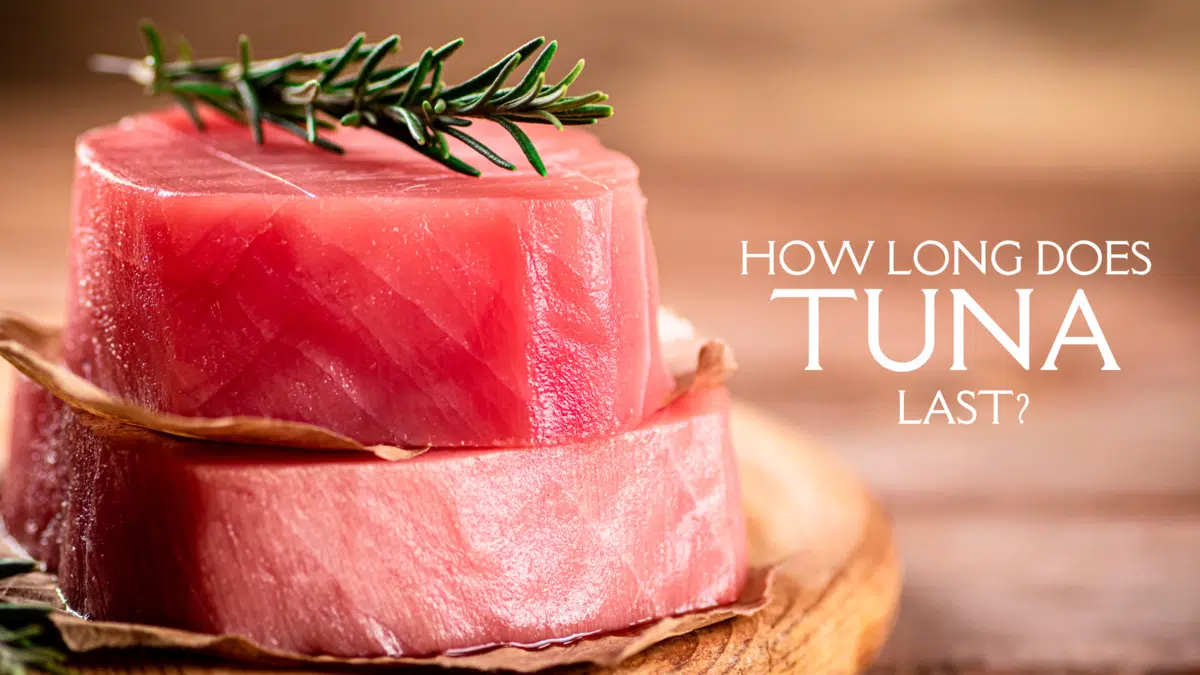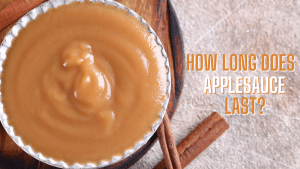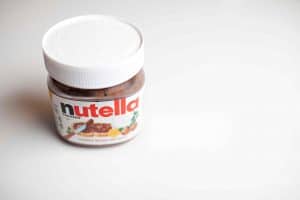How Long Does Tuna Last? Does it Spoil?
Important Note: When you buy through our links, we may earn a commission. As an Amazon Associate we earn from qualifying purchases. Content, pricing, offers and availability are subject to change at any time - more info.
Tuna is a popular food not only because of its delicate taste and texture but also because it has high nutritive value. It is loaded with omega-3 fatty acids and is a rich source of vitamins and minerals. Tuna is known to be good for your heart and reduces cholesterol and blood pressure thereby reducing the risk of stroke and heart attacks. It is also known for boosting brain activity and improving eye health. With so much going for it, it is common to find tuna at most dining tables and kitchens across the world. Whether yellowfin, albacore, skipjack, or any of the other varieties, tuna is easy to make and healthy to consume be it fresh tuna or canned.
But how long does this delectable fish actually last? Is it better in the fridge or freezer? How to store fresh tuna? How to store canned tuna? And most importantly how to tell if your tuna is good or bad?
How Long Does Tuna Last?
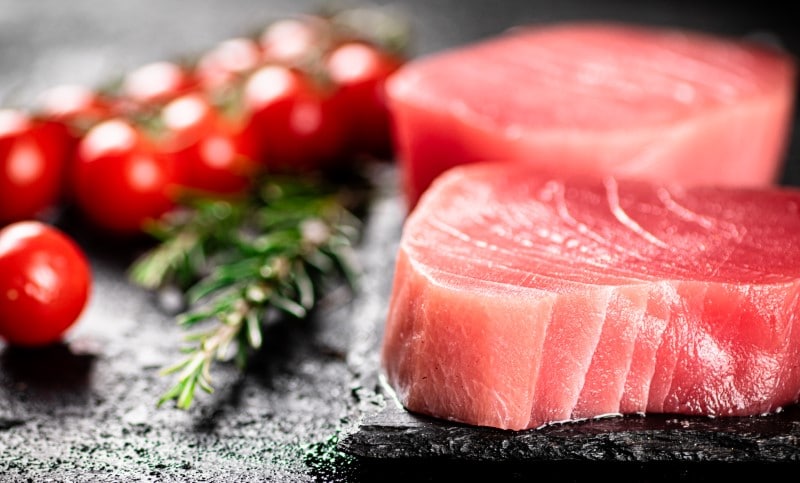
How long your tuna actually lasts depends on a number of factors like if it’s fresh-caught, store-bought, or canned; if it has been stored properly, if it is being stored in the pantry or the fridge, and more. To get a better idea of how long tuna lasts, let us look at a few kinds of tuna and understand their shelf life.
| Type of Tuna | Pantry | Fridge | Freezer |
| Fresh Tuna | 2-4 days | 2-3 months | |
| Canned (unopened) | 2 years | 2-3 years | Best-by date + |
| Canned (opened) | 2-5 days | 3-6 months | |
| Vacuum-sealed | 10 days | 3-6 months |
- Fresh tuna is the best to eat, both in terms of quality and taste. It has a delicate, almost sweet taste because it is so fresh and tender. Fresh tuna needs to be in the fridge as soon as you get it. Otherwise, bacteria and other microorganisms have a chance to grow on it and it will spoil.
- Fresh tuna will last in the fridge for 2-4 days. The tuna is going to taste the best the fresher it is eaten. Even after 4 days, the tuna does not necessarily spoil, but there is a significant downshift in the quality. The tuna won’t be as light, tender, and flaky, it might be drier and harder.
- Fresh tuna can be stored in the freezer for 2–3 months. The tuna will start losing both taste and nutrition after that. Once thawed, fresh tuna has to be eaten within 2 days.
- Canned tuna, on the other hand, has a much longer shelf life. It can last anywhere from a couple of days to months depending on where and how it is stored. Canned tuna usually lasts in the fridge for 2-3 years. Canned tuna will come with a best-by date, sell-by date, or use-by date. This date only indicates by when the tuna will reach peak quality. It does not mean it will spoil or expire after. In fact, canned, unopened tuna will still be good even a few weeks after the best-by date as long as it is undamaged, not leaking, and has been stored properly.
- Canned tuna that has been opened, needs to be refrigerated immediately and consumed within a few days of opening. Opened tins of tuna will be good in the fridge for no more than 5 days but can spoil as early as 2 days if not stored properly.
- You can also freeze the opened can of tuna, it will last in a properly sealed container in the freezer for 3-6 months.
- Vacuum-sealed tuna involves removing air from the bag or pouch, placing the fish inside, and then vacuum-sealing it. Branded, store-bought vacuum-sealed tuna snacks can last for months to up to even a year if unopened. If you are doing the vacuum-sealing at home, it can last for up to 10 days. The reason vacuum-sealed tuna does not last as long as canned tuna is because no preservatives are used to extend its shelf life. Only the air has been removed to take away all moisture and reduce decay.
- Vacuum-sealed tuna can last in the freezer for about 3-6 months.
How To Store Tuna?
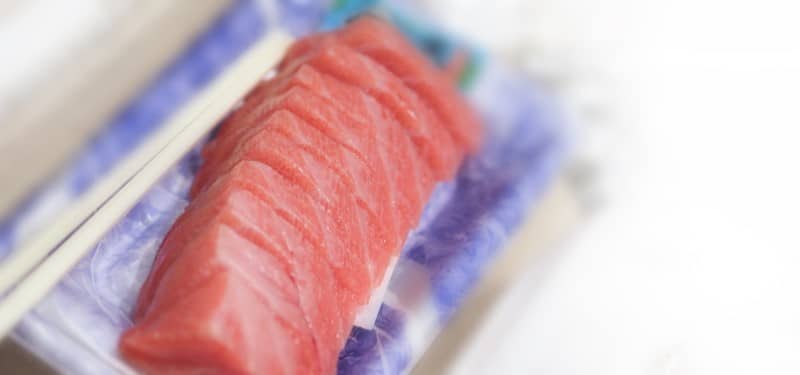
There are a few things to keep in mind when storing tuna as this could be critical in ensuring it does not decay. It is very easy for fish to spoil and extremely dangerous to consume spoiled tuna.
- Store tuna either wrapped tightly in aluminum foil or in an airtight container.
- Tuna has to be stored immediately in the fridge, or else it will start spoiling almost immediately, especially in warmer temperatures.
- Even when storing tuna in the fridge or freezer, you cannot leave it uncovered. Not only will everything around it start smelling of fish, but also the tuna will be exposed to the elements, risking bacteria and other decay.
- Tuna also remains fresher and lasts longer when you place it between sheets of wax paper or baking paper. It is better than wrapping it in plastic, which is not advised.
- Another good way to store tuna is to place it in a covered, shallow container and then place it in a bed of ice in the fridge. Ice ensures that the tuna stays fresh longer. But you have to keep replacing the ice as it melts.
- If you are freezing tuna, always remember to have baking sheets or wax paper between two cuts of tuna as it is easier to separate and thaw.
- Once you thaw tuna, you cannot refreeze it and it needs to be consumed within a day or two. Frozen and thawed tuna loses texture and the longer you keep it, the more taste and nutrients it loses.
How To Tell If Tuna Has Gone Bad?
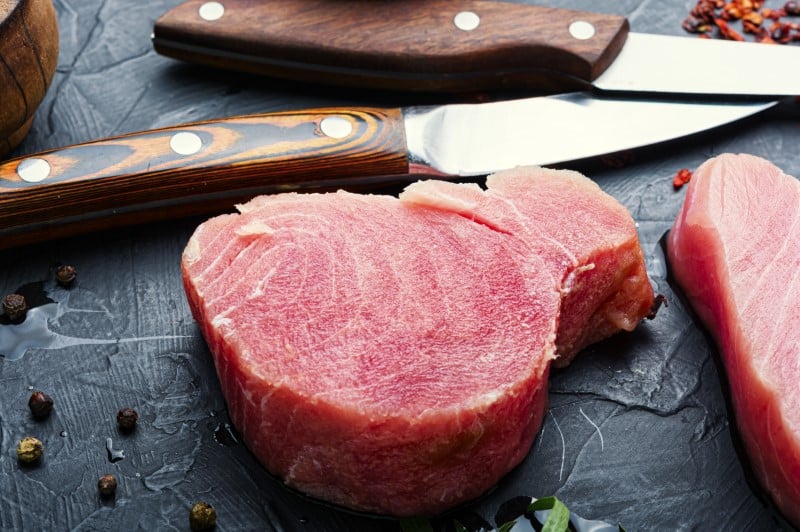
- The most obvious indicator of spoiled fish will be the smell. If the smell is very overpowering and is off, the tuna has turned and cannot be consumed. Remember, to never eat spoiled fish, it can cause some very serious health issues.
- Another way to know if your tuna has spoiled or not is to see if there are any changes to your stored tuna. If the tuna has a gray or green hue, it has definitely gone bad. Sometimes you may also notice some growth on it that might be spongy or fuzzy, if it has mold of any kind throw the tuna away.
- Cans and pouches can also go bad, and if the can is leaking or if the pouch is bloated and bulging you can be sure that the tuna inside is not good to eat.
- If you are not sure if your tuna has turned or not, just get rid of it. Better to be cautious than risk illness. If you have even an inkling of spoilage, get rid of it. Many times, the tuna might be well under the expiry date but if you suspect it might be off, then throwing it away is the safest bet.
As delectable as tuna might be, it is also susceptible to easy decay, so extra care and caution are needed when handling it. To ensure longer shelf life, store the tuna properly and if ever in doubt, just throw the tuna out.
